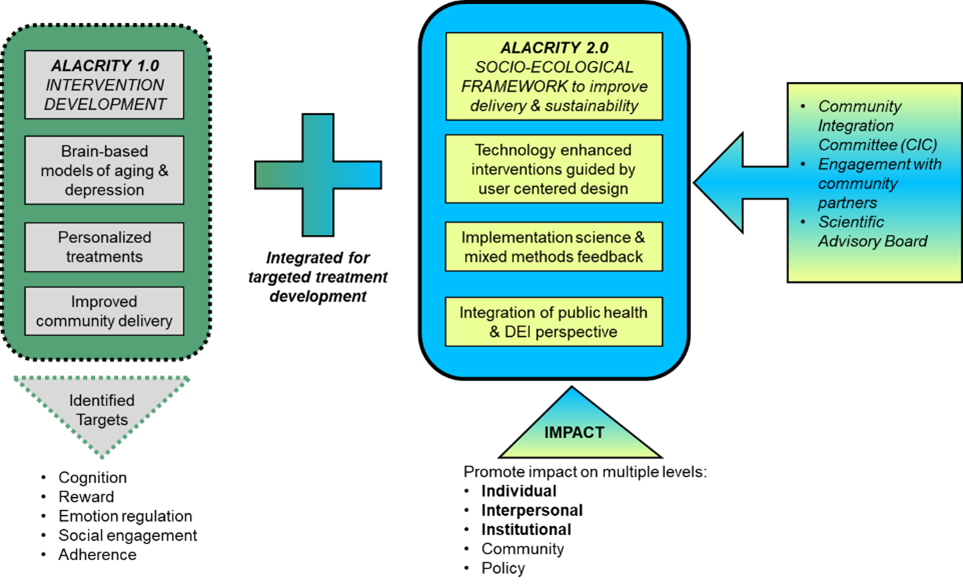About the Advanced Laboratory for Accelerating the Reach and Impact of Treatments for Mid- and Late-Life Depression (ALACRITY) Research Center
Our Center (ALACRITY 2.0) follows a synergistic approach to develop, evaluate, and implement psychosocial interventions for depression in later life that blends together our prior focus (ALACRITY 1.0) on streamlining interventions based on brain-based models of aging with our public health orientation. We use the socio-ecological model of interventions as a framework to improve the delivery and sustainability of interventions. Our Center and projects:
- Utilize technology guided by user-centered design
- Evaluate and plan for future research projects using implementation science and mixed methods analyses of feedback from participants, therapist, and partners
- Apply a diversity, equity, and inclusion (DEI) perspective to all Center’s processes;
- Are guided by the socio-ecological intervention framework to identify the multi-level factors that affect delivery and sustainability of interventions (i.e., individual, interpersonal, institutional, community, and policy level factors)
Our interventions focus on individual, interpersonal, and institutional levels to reduce barriers, and our team learns about and is guided by awareness of community and policy level factors that affect outcomes. We have expanded our ALACRITY 1.0 transdisciplinary team by adding investigators with expertise in Technology, Implementation Science and Qualitative Analysis, Health Inequities and Diversity, Equity, and Inclusion (DEI), Primary Care, Systems Evaluation, and Public Health perspectives.

ALACRITY Investigators









Isabel Rollandi, Ph.D.
Project Co-Lead








